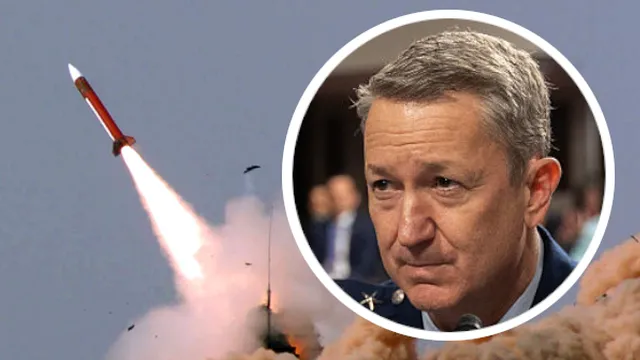
Iran retaliates with missile attack on U.S. base in Qatar
2025-06-27 00:00- The U.S. Department of State issued a global advisory urging Americans to exercise increased caution following airstrikes on Iran.
- The U.S. Embassy in Qatar directed Americans to shelter in place due to threats from Iran, which retaliated with a missile strike on a U.S. base.
- The recent military actions underscore the increasing hostility and risks for U.S. nationals and military personnel in the region.
Express your sentiment!
Insights
The escalating conflict between the United States and Iran has led to a significant increase in tensions in the Middle East. Following U.S. airstrikes on Iranian nuclear sites over the weekend, the U.S. Department of State issued a warning for American citizens worldwide, advising them to exercise increased caution due to potential demonstrations against U.S. interests abroad. Concurrently, the U.S. Embassy in Qatar instructed American nationals in the country to shelter in place as Iran threatened retaliation. In reaction to this unfolding situation, Qatar temporarily closed its airspace to ensure the safety of its citizens and foreign residents. On June 23, 2025, as the U.S. escalated its military involvement in the region by supporting Israel's attacks on Iranian facilities, the defensive measures taken by the U.S. bases became more pronounced. The U.S. facilities in the region, especially the Al Udeid Air Base in Qatar, were put on heightened alert due to fears of Iranian attacks. This base serves as a crucial operational hub for U.S. military assets in the Gulf region, housing approximately 10,000 troops. Subsequently, on June 24, 2025, Iran executed a missile strike on Al Udeid Air Base, which was intercepted and resulted in no reported casualties. Following the strike, the U.S. Embassy's shelter-in-place advisory was lifted, signaling a temporary alleviation of immediate concerns. Nevertheless, the situation remains fluid, as Iranian officials have previously emphasized their intention to retaliate against U.S. military and interests following the bombings of their nuclear facilities. Simultaneously, as the U.S. military maintains a considerable presence in the region, including about 40,000 troops stationed across various bases, there is growing concern about the safety of American citizens and military personnel following recent developments. The U.S. government and its allies continue to monitor the situation closely and adapt their security protocols, aiming to safeguard their interests in this volatile landscape. Ongoing threats are anticipated, and both military and diplomatic responses will likely evolve as the conflict progresses.
Contexts
The relationship between the United States and Iran has been marked by volatility and tension, particularly since the Islamic Revolution in 1979. Understanding the latest updates on U.S.-Iran relations necessitates a look back at key historical events and recent developments. The U.S. has historically applied economic sanctions on Iran, particularly under the administrations of George W. Bush, Barack Obama, Donald Trump, and Joe Biden. These sanctions have targeted Iran's nuclear program, human rights violations, and its support for terrorist organizations. The 2015 Joint Comprehensive Plan of Action (JCPOA) represented a significant diplomatic effort by the Obama administration to curb Iran’s nuclear capabilities through a series of negotiations, which led to Iran scaling back its nuclear activities in exchange for sanctions relief. However, the U.S. withdrawal from the agreement in 2018 under Trump resulted in the reinstatement of harsh sanctions and a significant escalation in hostilities between the two nations. In the years following the withdrawal from the JCPOA, Iran began to gradually step back from its commitments under the agreement, leading to heightened tensions and a series of proxy conflicts in the Middle East. The assassination of Iranian General Qassem Soleimani by U.S. forces in January 2020 marked a notable escalation in the conflicts, prompting retaliatory actions from Iran and increased U.S. military presence in the region. The Biden administration, which took office in January 2021, expressed a willingness to return to negotiations to revive the JCPOA, emphasizing diplomacy as the preferred pathway to address the nuclear issue and related concerns. This shift opened the door to dialogue, with multiple rounds of talks in Vienna aimed at resuming compliance with the nuclear agreement. As of June 2025, the negotiations have faced considerable challenges, including Iran's demands for the removal of sanctions and the U.S. insistence that Iran first returns to compliance with the agreement terms. Amidst these discussions, both countries have maintained a watchful eye on their regional influences, with Iran's nuclear program continuing to progress and regional proxy groups engaging in various conflicts. The complexities of negotiating between Iran’s aspirations and U.S. security concerns are substantial, as both nations must balance diplomatic efforts with their internal politics and public opinion. Key stakeholders, including European allies and regional partners, have also sought to mediate or influence the ongoing discussions, highlighting the international dimension of U.S.-Iran relations. Looking forward, the trajectory of U.S.-Iran relations remains uncertain. Global geopolitical circumstances, including the broader implications of the Ukraine conflict and relations with other Middle Eastern nations, particularly Saudi Arabia, could affect the dynamics between Tehran and Washington. The potential for a renewed JCPOA or an alternative agreement hinges not only on nuclear considerations but also on regional security, economic interests, and mutual trust, which have been severely eroded over the years. Both nations face significant decisions regarding their diplomatic and military strategies, which will ultimately shape the future of their relationship in an increasingly complex global landscape.